Share:
The Economic Development Office (EDO) provides information and services to help your business grow and prosper in Mississauga. Let us be your first point of contact for business development. From site sectors, real estate professionals to direct client contacts, EDO can help facilitate business development and expedite the site selection process.
Whether you’re just starting out, expanding, consolidating or relocating your company, you can rely on our team of professionals to help make your decisions easier, faster and more effective. We have all the right connections to help you.
Please contact us for all your questions and requirements.
Data & Resources
Location & Access to Markets

Location:
• Mississauga, Ontario, Canada
• 3rd Largest City in Ontario
• Neighbour to the City of Toronto
• Located within the Greater Toronto Area (GTA) & The Toronto Region
Our Region:
• The Toronto Region is home to 7.7 million people and 281,000 companies.
• The region’s GDP in 2013 was approximately $560 billion (US), positioning it amongst the largest economies in North America with prominent innovation and tech hubs.
Within a 1 Hour Drive:
• 7.8+ million people
• 32+ colleges and universities
• Access to major cities including Kitchener-Waterloo, Hamilton and the U.S. Border (Buffalo)
Within a 1.5 Hour Flight:
• 131+ million people
• 1,000+ colleges and universities
• Access to major cities including New York, Boston, Ottawa, Montreal, and Chicago
Harbour & Ports:
• Mississauga is situated in the middle of two of the largest ports on the Great Lakes: the Port of Toronto and the Port of Hamilton.
• The Port of Toronto, one of Canada’s largest major inland ports. Its provides access to 25 per cent of Canada’s population.
• The Port of Hamilton is Ontario’s largest port. 28% of all Canadian Great Lakes-St. Lawrence Seaway Cargo moves through this Port.
Global Trade Advantages:
• Mississauga, as part of Canada offers 14 trade agreements with 51 countries, providing access to over 1.5 billion people and $9.3 trillion in combined GDP.
• Canada’s trade agreements include: CUSMA, CETA & CPTPP
To learn more about our location and market access, click here.
Infrastructure

Smart Digital Technology:
• For the City of Mississauga a Smart City is one that uses technology to support the people that live, work and play in Mississauga.
• As a young city, Mississauga has had an opportunity to build technology into our infrastructure, systems and processes in tandem with the rise of digital technology in our society.
• Mississauga is home to the largest municipally owned fibre optic network in Canada. Over 800 kilometres of fibre connect over 290+ sites across the city.
Airport:
• Home to Canada’s largest airport – Pearson International Airport (YYZ) serving over 49 million passengers a year.
• Over 70% of the world’s economy is in reach with daily, non-stop flights serving over 65 airlines and 210 destinations
• Nearly half of all international air cargo leaving or entering Canada passes through Pearson – Over 535,000 tonnes of cargo annually.
Highways & Commute Time:
• Serviced by 7 Major Highways
• As part of the Toronto Region – access to an extensive road network consisting of 587 kilometres (365 miles).
• The region has a congestion level of 30%, The overall regional average commute time is 27 minutes ranking ahead of San Francisco, New York, and Seattle.
Light Rail Transit:
• Scheduled for completion in Fall of 2024, the18-kilometre Hazel McCallion Line will feature 19 stops, travelling through two urban growth centres and connect to major transit systems including GO Transit to briader parts of the Greater Toronto Region.
Bus & Transit:
• 2nd Busiest GO Bus terminal in Canada (Toronto’s Union Station is #1)
• Home to the Mississauga Transitway, a dedicated highway for public transit (20 minutes can travel you to the other side of the city)
Train & Rail:
• 3 Major Railway lines offering both Passenger and Intermodal services.
Cycling:
• The City envisions a comfortable, connected and convenient cycling network that includes separated bike lanes, cycle tracks, multi-use trails, conventional bike lanes and shared routes.
• 454 km (282 miles) total cycling network
To learn more about our infrastructure, click here.
Talent, Education & Workforce

Our Region:
• The Toronto Region is One of North America’s most educated talent pools.
• Access to over 7.7 million people and 5.4 million labour force.
• Access to over 400,000 students.
Workforce Education:
• The Toronto Region has a very highly educated populated, with more post-secondary degrees per 100,000 people than major U.S. metros.
• 64% of the population have a post-secondary education
• 620,000 workers have some form of STEM degree
• Ontario students continue to outperform their U.S. counterparts and the OECD average in all three PISA domains: science, reading, and mathematics.
• We have raised our high school graduation rate from 68% in 2003 to 86.5% in 2016
Workforce Cost:
• High Quality Labour at a Low Cost. Salaries in the Toronto Region are cost competitive with most U.S. cities and include further cost savings for employers due to a public healthcare system.
• Average salaries for STEM talent are also significantly lower than major markets across the United States at similar or higher levels of education and training.
Educational Institutions:
• Home to 1 University and 2 Colleges
• Access to 15 Universities and 17 Colleges within a 1-hour Drive
• Ontario’s publicly-funded colleges and universities are among the best and most innovative in the world.
• More than 400,000 students are enrolled across these institutions, accounting for 75 per cent of Ontario’s overall post-secondary enrolment.
Immigration & Diversity:
• #1 most diverse population in the world (as part of Toronto Region)
• The Toronto Region welcomes more than 100,000 new immigrants every year, accounting for a third of Canada’s total immigration inflow.
• Ontario welcomes more than 105,000 international students enrolled in its educational institutions
• The Ontario Immigrant Nominee Program (OINP) creates permanent immigration pathways for technology workers and entrepreneurs.
• Canada’s Global Skills Strategy (GSS), a fast-track visa program that makes it easier for companies to bring in highly-skilled temporary foreign workers. GSS offers 10 business day work permit processing for such talent.
To learn more about our talent, education and workforce, click here.
Industry Sectors

Mississauga has a robust and diverse business community comprised of some of the largest knowledge-based industries in Canada.
These sectors include:
Quality of Life

- 89% of Mississauga residents rate Quality of Life as Excellent or Good.
Health & Safety:
• Home to 2 Major Hospitals
• Employer health costs per year for a typical business in Ontario are one-third the cost of the U.S. average ($360,000 vs $997,000) thanks to the province’s universal healthcare system.
• Mississauga remains a safe place to live and work and compares favourably against other Canadian metropolitan centres.
Diversity & Inclusion:
• 145 Languages Spoken
• 53% of Mississauga residents are born outside of Canada
• Mississauga’s diversity and multiculturalism is considered one of our strengths.
Entertainment:
• Located in downtown Mississauga, Celebration Square is an open-air public square, urban park and the City’s premier venue for outdoor events and attracts over 750,000 visitors each year and is home to hundreds of free annual festivals and cultural events.
• Taste international cuisinefrom over 100 countires that can found across the city in any of the over 1,200 restaurants and cafes
• Shop at Square One Shopping Centre, Canada’s 2nd largest mall or find deals at the outlets of Heartland Town Centre. Then go-local and shop our quant villages of Port Credit and Streetsville for one-of-a-kind finds.
Parks & Trails:
• Mississauga has achieved an admirable open space system comprised of more than 3,100 hectares of parkland and other open space.
• Over 489 Parks, 262 Playgrounds, 367 Sports Fields and 250km (155miles) winding cycling trails
Waterfront & Beaches:
• Mississauga’s waterfront spans 22 kilometres (13.6 miles) along the shores of Lake Ontario
• 3 Beaches
• 1,600 km (994 miles) Waterfront trail
• 2 Marinas
Climate & Weather:
• Spring [Mar-May]: average of 7.8 degrees Celsius (46 degrees Fahrenheit) accompanied by an average rainfall of 58.9 millimetres (2.31 inches).
• Summer [Jun-Aug]: average of 21 degrees Celsius (70 degrees Fahrenheit) accompanied by an average rainfall of 72.3 millimetres (2.84 inches).
• Fall [Sept-Nov]: average of 11 degrees Celsius (52 degrees Fahrenheit) accompanied by an average rainfall of 74.8 millimetres (2.94 inches).
• Winter [Dec-Feb]: average of -2.25 degrees Celsius (27 degrees Fahrenheit) accompanied by an average rainfall of 32.3 millimetres (1.27 inches).
To learn more about our quality of life, click here.
Cost of Doing Business & Stability

When your business weighs the differences between the cost of doing business in different regions, it’s important to consider all contributing factors. Mississauga’s cost of doing business is relative to surrounding cities, and quite lucrative once you take into account the number of business advantages within our borders.
Mississauga’s infrastructure, developed and diverse business ecosystem, and strong municipal financial performance make the city a stable and competitive place to invest. City Council’s enterprise approach to city operations coupled with its sound financial management, are what have allowed Mississauga to plan for the future and simultaneously maintain a very low debt burden.
Mississauga as apart of the Toronto Region are at the centre of one of the most stable and competitive business environments in the world. As Canada’s economic centre, the region boasts strong and steady GDP growth. The Toronto Region’s economy represents 20% of Canada’s GDP—more than any other metro region or province.
Mississauga’s infrastructure, developed and diverse business ecosystem, and strong municipal financial performance make the city a stable and competitive place to invest.
To learn more about our cost of doing business and stability, click here.

